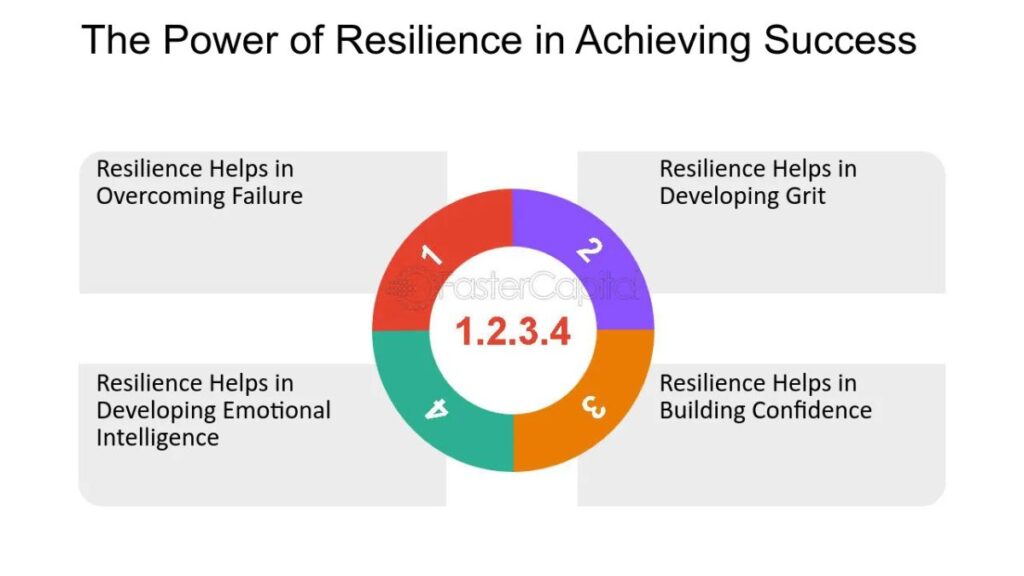In the pursuit of success, one essential quality often stands out as a significant predictor of achievement: resilience. Resilience is the ability to bounce back from setbacks, adapt to challenging circumstances, and continue moving forward despite adversity. Whether in personal development, career advancement, or academic achievement, resilience plays a pivotal role in how individuals respond to obstacles and ultimately reach their goals. This article explores the multifaceted nature of resilience and its crucial role in achieving success, emphasizing the strategies that individuals can employ to cultivate this vital trait.
Understanding Resilience
Resilience is not merely about enduring tough times; it involves a proactive approach to overcoming difficulties. It encompasses emotional, mental, and physical fortitude, allowing individuals to maintain their focus and motivation even when faced with challenges. Psychologically, resilience can be understood as a process that includes risk factors, protective factors, and the individual’s adaptive capacity. Those who demonstrate high resilience often possess a growth mindset, which empowers them to view failures as opportunities for learning rather than insurmountable obstacles. This mindset enables them to embrace challenges and persist in their efforts, which is a critical component of achieving success in any endeavor.
The Connection Between Resilience and Success
Research consistently highlights a strong link between resilience and success across various domains. In education, resilient students are more likely to overcome academic challenges, perform better under pressure, and maintain their motivation to learn. In the workplace, resilient employees can navigate organizational changes, manage stress, and exhibit higher job satisfaction. They tend to be more innovative, as they are willing to take risks and experiment with new ideas, knowing that failure is part of the learning process.
Resilience is particularly important in entrepreneurial endeavors. Entrepreneurs face numerous challenges, from securing funding to managing competition and navigating market fluctuations. Those who possess resilience are better equipped to handle the inevitable setbacks that come with starting and growing a business. They can learn from failures, pivot their strategies, and continue working towards their vision, ultimately increasing their chances of success.
Building Resilience: Key Strategies
- Cultivating a Growth Mindset The foundation of resilience lies in adopting a growth mindset. This concept, popularized by psychologist Carol Dweck, refers to the belief that abilities and intelligence can be developed through effort and perseverance. Individuals with a growth mindset view challenges as opportunities to learn and grow, while those with a fixed mindset may see setbacks as a reflection of their abilities. To cultivate a growth mindset, individuals should embrace challenges, seek feedback, and celebrate their progress, no matter how small.
- Emotional Regulation Developing emotional regulation skills is crucial for building resilience. This involves recognizing and managing one’s emotions effectively, especially during stressful situations. Techniques such as mindfulness, meditation, and deep-breathing exercises can help individuals remain calm and focused when faced with adversity. By regulating their emotions, resilient individuals can make clearer decisions, maintain their motivation, and respond to challenges with a level head.
- Establishing Support Networks Building and maintaining strong support networks is another vital strategy for enhancing resilience. Friends, family, mentors, and colleagues can provide emotional support, guidance, and encouragement during difficult times. Engaging with others who share similar goals or challenges fosters a sense of belonging and reinforces the belief that one is not alone in their struggles. Resilient individuals often reach out for help when needed and are willing to share their experiences to support others.
- Setting Realistic Goals Setting realistic and achievable goals is essential for maintaining motivation and resilience. When individuals establish clear, attainable objectives, they are more likely to experience a sense of accomplishment as they progress. These small wins can boost confidence and reinforce the belief that they can overcome obstacles. It’s important to break larger goals into manageable steps, allowing for flexibility and adjustment along the way.
- Learning from Failure Embracing failure as a learning opportunity is a hallmark of resilience. Instead of viewing setbacks as failures, resilient individuals analyze what went wrong, identify lessons learned, and apply that knowledge to future endeavors. This iterative process fosters continuous improvement and builds confidence in one’s ability to navigate challenges. By reframing failure in this way, individuals can reduce fear of failure and become more willing to take risks.
The Impact of Resilience on Personal Development
Resilience not only plays a crucial role in achieving success in external pursuits but also significantly impacts personal development. Individuals who cultivate resilience tend to experience greater self-awareness and self-esteem. They develop a deeper understanding of their strengths and weaknesses, allowing them to navigate challenges more effectively. This self-awareness promotes emotional intelligence, which is vital for building healthy relationships and effective communication.
Moreover, resilience enhances problem-solving skills. Resilient individuals approach challenges with a solution-oriented mindset, seeking creative ways to overcome obstacles. They are more likely to think critically and analyze situations from multiple perspectives, leading to better decision-making. This adaptability and resourcefulness contribute to overall personal growth and increased life satisfaction.
Resilience in Different Contexts
Resilience manifests differently across various contexts, including personal life, education, and the workplace. In personal life, resilience enables individuals to cope with emotional challenges, such as loss, relationship issues, or health problems. It allows them to rebuild their lives after experiencing significant setbacks, fostering personal growth and transformation.
In educational settings, resilience is crucial for students facing academic pressures, peer challenges, and extracurricular demands. Resilient students are more likely to seek help when needed, engage actively in their learning, and persist in the face of difficulties. Educators can foster resilience in their students by creating supportive learning environments, encouraging open communication, and providing opportunities for collaboration and problem-solving.
In the workplace, resilience is essential for managing stress, adapting to change, and maintaining high levels of performance. Resilient employees contribute positively to organizational culture and are more likely to exhibit leadership qualities. Companies that prioritize resilience training and development create a more adaptive workforce, ultimately enhancing productivity and job satisfaction.
The Long-Term Benefits of Resilience
The long-term benefits of resilience extend beyond immediate success. Individuals who develop resilience often experience improved mental health and well-being. They are better equipped to handle stress, anxiety, and depression, leading to greater overall life satisfaction. Moreover, resilience fosters a sense of purpose and direction, as individuals are more likely to pursue their goals with determination and optimism.
In a rapidly changing world, the ability to adapt and thrive in the face of adversity is more critical than ever. Resilience empowers individuals to embrace uncertainty, navigate challenges, and emerge stronger from setbacks. As they cultivate resilience, they not only enhance their chances of achieving success but also enrich their personal growth and overall quality of life.
Conclusion
In conclusion, resilience is a fundamental trait that significantly influences an individual’s ability to achieve success. By cultivating a growth mindset, developing emotional regulation skills, establishing strong support networks, setting realistic goals, and embracing failure as a learning opportunity, individuals can enhance their resilience and improve their chances of overcoming challenges. The impact of resilience extends beyond professional achievements, contributing to personal development, mental well-being, and overall life satisfaction. In a world filled with uncertainties, nurturing resilience is not just a strategy for success; it is a vital component of thriving in every aspect of life. Embracing resilience as a lifelong journey will enable individuals to face challenges head-on, adapt to changing circumstances, and ultimately achieve their goals.






